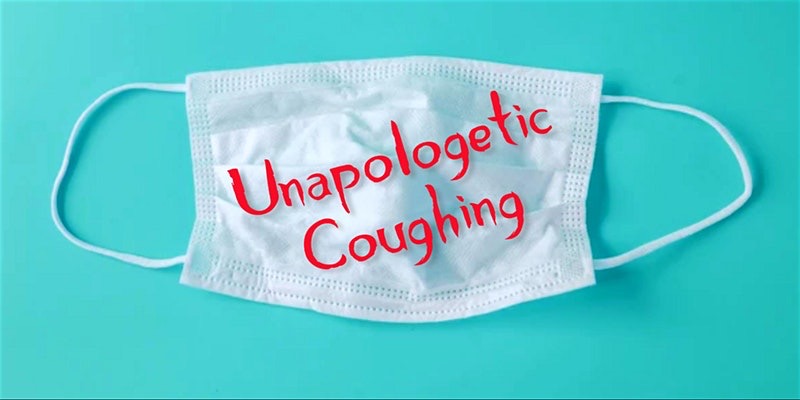As history reveals for us, whenever a pandemic transpires, xenophobia is never far behind. Since the outbreak of the Covid-19 pandemic started in China, there has been a spike in racism towards Asian communities. The offences range from mild inappropriate jokes, subtle social distancing to obvert insults and violent hate crimes. Covid-19 has put not only our healthcare systems to test but also the idea of an open and inclusive society. How art can help the situation has become an unavoidable and pressing question to every living artist now. Recently, Korean artist Youngsook Choi has answered this question with her live performance ‘Unapologetic Coughing’.

Unapologetic Coughing is part of the anti-racism movement ‘Un-racialising the coronavirus epidemic’ organised by Asia Art Activism, a London based art institution. As a participatory performance, it aims to create solidarity for everyone who has found the past few months difficult because of raising xenophobia attitudes.
The work takes the form of a collective reading performance with intervening sections. During the performances, participants were asked to read aloud a script created by the artist and her fellow researcher from AAA. The script is constructed out of upsetting news clips from various media platform. The participant can cough at any time while reading if the content has caused them any mental and/or emotional discomfort. When one person start coughing, others could also cough as a way of showing their empathy and understanding towards that person. ‘Reading can be disrupted anytime by this collective gesture of unapologetic coughing. Reading resumes when everyone in the room has expressed enough of their discomfort, meaning when the coughing completely stops.’ The script also includes interventions with different intentions. For example, the participants sang a Chinese New Year song during the first intervention, which ‘was meant to be an empathetic moment for People in Wuhan’.

Out of health and safety concerns, a hazard jumpsuit and a mask were given to every participants as protective gears before the performance started. Photo credit: Nurri Kim

Artist Youngsook Choi. She become AAA’s resident research associate in early January this year.
Since February, wearing masks and coughing has almost become a sin for Asian communities, Youngsook’s work stand as a protest against this racism hysteria by restating people’s rights to both. With admiration, we have interviewed the artist to get a closer look at how she intends to radical racism via this collective act.
Subtropical Asia: Since the Coronavirus outbreak, have you experienced any change in the way people treat Asian decent or people from Asian countries? Was there any particular instance that motivated you, or provoked you to create the project?
Youngsook Choi: One day I was sitting in the studio which I share with other artists and creators. And my colleague who is a white British told me that he had never observed so much open racism in his life and it was due to the outbreak from China. It sounded alarming and I quickly googled with search words ‘Coronavirus and open racism’. The result was far too overwhelming. It was bloody obvious that all South/East Asian-looking populations were considered as virus carriers, the source of contamination and potential targets of a racist attack. Then I realised that people were behaving differently around me. Once I was on the bus. It was fully packed and no one sat next to me, an awful moment. I saw a man who turned his head away and covered his mouth when I passed him. I wrote ‘Unapologetic Coughing’ out of anger, frustration, urgency, and most crucially, a need not to feel alone in this.
I borrowed this bodily method ‘cough’ from a medical symptom ‘psychogenic cough’, a cough without obvious medical aetiology and considered to have a psychiatric or psychological basis. Even by the medial description, coughing seems to be a perfect medium of expressing our emotional anxiety and psychological turbulence caused by racism around Coronavirus outbreak.

Photography of the venue before participants arrive. Photo credit: Nurri Kim
What does the project aim to express/achieve?
For me, art is never an end product for the audience but rather a means of constituting a collective political agency, tightening solidarity networks and conspiring social changes.
I want this performance to be a rehearsal of political action rather than a show-off on stage. Not for the kind of a mass movement but more for intimate protests and small gatherings for shy radicals. That’s why, before the performance began, I asked the participants to take the performance script with them and perform it again and again within their solidarity networks and with those who have been influenced by this racist hysteria. I hope this can be part of healing action and to provide a platform for exchanging personal recounts and discussing the ways of changing racist narratives.

Collective reading. Photo Credit: Nurri Kim

Collective reading. Photo Credit: Nurri Kim
I noticed that a lot of your work use performances as the media and often involves participants. As the artist, how do you conceive of your relation with the participants, particularly in this project?
Imagine we are all dots and each has a certain willing out of social and political discontent. When you join dots, they become shapes, pictorials, figures, landscapes, scenes or something rebellious, beyond current knowledge system. I believe participatory art builds up to this magical moment of connection. Without dots, there is no connection. Who they are and what issues are going on in their minds is a critical part of my works. Especially when talking of socio-political agenda, this connection creates a space for solidarity. Participants of my works represent the voice of future ancestors who believe the change is inevitable. Similarly, Unapologetic Coughing was a call out for wounded victims and worrying minds who yet refuse to be defeated by the current tide and are keeping the hope resiliently that we can change this.

The participants playing Chinese whisper during one intervention. Photo credit: Nurri Kim

The participants playing Chinese whisper during one intervention. Photo credit: Nurri Kim
Finally, any advice on what else artists could do to rebel against this raising racism?
Document well because we are experiencing lots of déjà vu. As my research progressed, I found racism around pandemic outbreak is a repetitive narrative. Ebola portrayed as a black disease and SARS as yellow peril are not so far away examples. As long as we keep destroying the global ecosystem, a new virus will break out and a scapegoat for blaming will be in demand again. As we observed, the mainstream media is not so accountable. Their corrupted intention is not interested in discovering the truth. Art practices can be the channel of cultivating buried voices and unheard truth.

The participants circled together and sang ‘ring-a ring-o rose’. Photo credit: Nurri Kim

The participants circled together and sang ‘ring-a ring-o rose’. Photo credit: Nurri Kim
While using art to combat social injustice is not a new phenomenon, Unapologetic Coughing stands out as a particularly refreshing piece of work. Instead of identifying Youngsook’s work as the particular event that took place at Raven Row at March the 7th, for me, the true form of Unapologetic Coughing exists as a solidarity instruction, much like Sol LeWitt’s instruction for paining. When realised, the performance becomes an act against racism itself rather than simply a carrier for anti-racism messages. It thus poses to all artists who want to combat racism via their work a serious question: why choosing such and such art form, e.g. painting, illustration, film, to deliver your message? A question that is so often taken for granted by us because of our familiarity with art forms. Unapologetic Coughing also stands as an inspiring work, for it shows us how works of art could transcend beyond expression of the artist’ personal thoughts and feelings, and exist as something else for the participants – a way to channel their anger, to express their discomfort and to create solidarity among people.
Enjoyed this article? Like Subtropical Asia on Facebook or follow us on Instagram.
